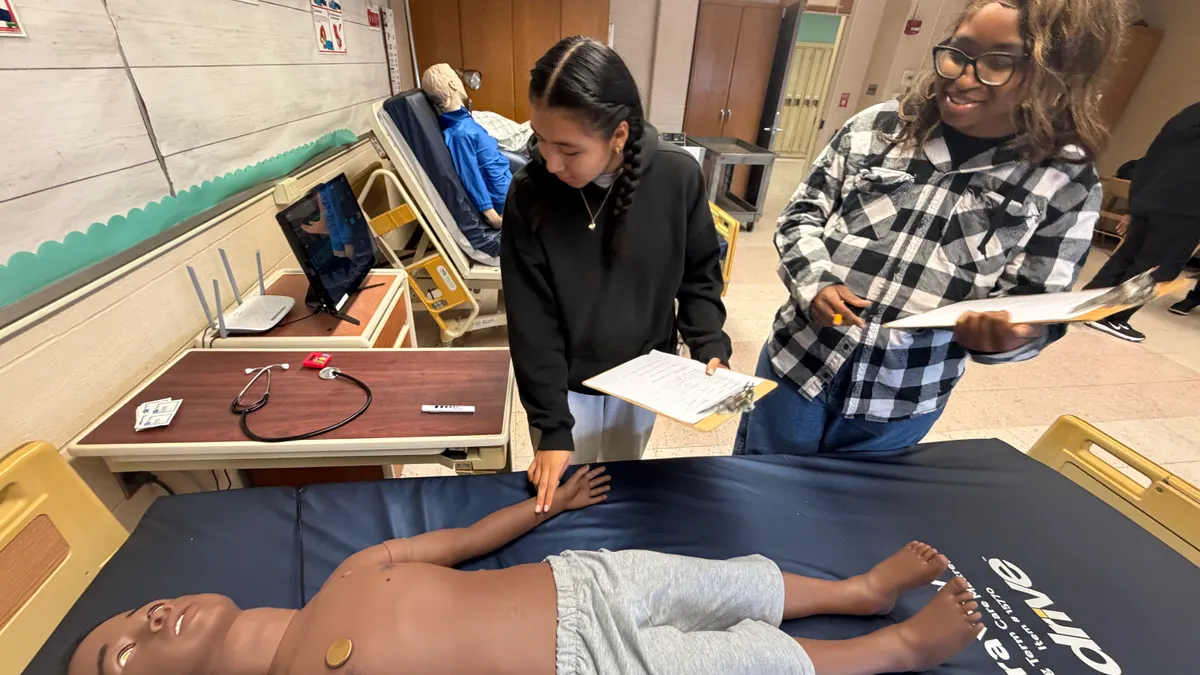Nasrin Jafari feels fortunate to be teaching in a school where educating students to develop critical thinking skills is considered more valuable than correct answers to standardized test questions.
As a humanities teacher at City School of the Arts in New York City, Jafari sees tremendous value in taking missteps and failing. She wants to support the middle school children she works with so they know how to handle the stumbles that will happen not just in their educations, but throughout their lives.
“Students should be encouraged to learn how to fail,” Jafari told Education Dive by email. “That is, seeing failure as an opportunity to learn from their mistakes and correct their actions in the future.”
Fail often and early
Failure is a word that, in some cases, has been almost mythologized. To fail is to build resilience, with failure symbolizing an attitude that embodies change and challenge. As author Neil Gaiman once extolled in his speech at the London Book Fair in 2013: “Fail better.”
And Michael Jordan told a generation in a 1997 Nike commercial, “I have failed over and over and over again in my life. And that is why I succeed.”
That school of thought — the idea of failure as the stepping stone for inner strength — is one educator and current education coach Rick Wormeli champions. However, getting students to a place where they feel not just comfortable with failing, but adept at recovering, needs to be encouraged early by the adults in a student’s life, said Wormeli by email to Education Dive.
Wormeli notes that by high school it’s almost too late to start developing these skills. By then, students are in the throes of classes and exams that they know impact the college process, where “the stakes are much higher, and it’s not as healthy or quick a recovery process,” he said.
Instead, Wormeli believes administrators should toss grades and even honor roll lists. To him, students just see grades as a way to compare themselves to peers, not as a marker of how they’ve progressed. Teachers may need some retraining of their own so they can see the value of mistakes, too.
“Students can learn without grades and rankings, but they can’t learn without ego-neutral feedback,” he said. “Students just don’t critically analyze their work, including mistakes, with any degree of insight or depth when personal status questioned by a grade [is] written at the top of the paper.”
Failure yields trust
Failure can do more than build resilience — it can also help students develop a sense of trust, wrote researchers in a 2016 study published in the Journal of Experimental Child Psychology. The authors exposed students to a rigged game where they were told to locate something.
All students were given helpful clues. But researchers found that the students who failed actually developed a better sense later of who they could trust for valuable information and who they could not. The students who succeeded constantly were not open to help and therefore could not get a sense of someone who was helpful or not.
“Always successful children did not identify helpful informants as being helpful,” wrote researchers. “Successful children develop illusory control and ignore informant differences.”
Embrace failure
So where can teachers start? Jafari suggests curriculum developers begin by helping educators become comfortable with failure, as well, and actually build a school culture that has a “positive approach to failure,” she says.
For schools that look to standardized test scores to rate how they’re doing, she believes administrators should instead start examining attendance, academic growth, and surveys that students take about their own well being alongside exmissions — where students go next in their educational careers. For elementary schools, it would mean looking at the middle school admissions, and for middle schools, this would be the high school that students go to and so forth.
“Ultimately, I think teaching failure boils down to school culture,” she said. “If teachers embody that quality in their own practice and can foster an environment in which students can learn to do the same, I think students will grow immensely.”



















